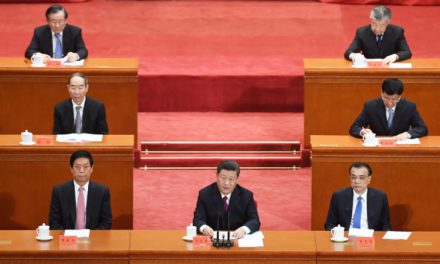By Liu Shuqing
Nov 7, 2024
I. Many population crises
While your author was in middle school about 30 years ago, I deeply detested the infringement of citizens’ personal and property rights during coercive family planning. At that time, I didn’t understand what human rights were. Based on a simple sense of justice, I simply hated the barbaric methods of law enforcement in China.
About 20 years ago, I started posting or commenting on Kaidi and Tianya about the extreme irrationality of the strict one-child policy in cities and the “one-and-a-half-child policy” in rural areas, and the serious imbalance in the sex ratio of the population that it would inevitably cause. I criticized and warned about the disruptive changes in the population ecology. Of course, I also repeatedly emphasized that reproductive rights are basic human rights and should not be deprived. Although Kaidi and Tianya have become a thing of the past, some of the articles written still remain.
Around 2010, the negative consequences of strict family planning began to emerge. The situation had now reached a point where change was urgently needed, but due to policy inertia and obstruction by the alliance of family-planning interest groups, the opportunity for correction was missed. If the family-planning policy could have been terminated around 2008, those born in the 1970s who had a high desire to have children could still have caught the last train and had a second child. This would not only have improved the population structure, it would also have significantly increased the growth of the new generation due to what would have been the widespread choice for second children among those born in the 1970s. Young people’s desire to have children would not have declined so much. It is very regrettable that this precious opportunity was missed.
When the population problems caused by family planning could no longer be concealed, the authorities did not put an end to the policy immediately. Population experts at the time still intimidated political leaders and fabricated the supposed terrible consequences of allowing two children. In 2014, Chinese demography expert Zhai Zhenwu published a paper in “Population Research.” There he predicted that if every couple were allowed to have a second child, the number of newborns would reach 49.95 million in the second year, and China’s birth rate would actually reach 4.5 children per couple. As a result, senior officials delayed the overall decision to allow two children until 2016, by which time the family-planning policy should have already been completely terminated, so that families could be allowed to have children freely.
At this point, the opportunity for the generation born in the 1970s to have a second child was completely ruined. China’s very concept of having children and even willingness to have them were destroyed. Then followed the current fertility-rate cliff and the downward spiral in the number of new births.
As an independent intellectual I can use common sense to clearly judge the population crisis. But the government, despite having gathered all its own intellectual resources, was not even aware of it. This is very disappointing.
In fact, the word “population” [in Chinese rendered as “human mouths”] often gives me discomfort. I hate studying people as objects. But from an economic point of view, people are indeed a factor of production, and the most important one at that, so I will reluctantly use the term.
People are the purpose, the only purpose in fact, of development, while population is its bedrock. Without population, all is nothing. For such an important production factor, the government has gathered so many so-called demography experts. That their understanding is so contrary to common sense is surprising.
In the author’s view, China is facing an all-round social crisis, but none is more deadly than the demographic crisis. Decades of forced family planning have fundamentally changed the Han people’s concept of fertility, and generated a continuous horrendous harvest — young people don’t fall in love, get married, or have children. This, coupled with an economic slump and high unemployment, has further worsened the fertility environment. It was first reported that only 7.88 million newborns would be born in 2023. Later, the official number put out was 9.02 million. Based on my personal judgment, I believe that 7.88 million is closer to the truth, but even 9.02 million is an extremely low number.
And China’s demographic crisis has yielded many derivative problems: kindergartens have closed down in large numbers, hospitals’ obstetrics and gynecology departments are empty, sales of infant products are bleak, and no one is entering the property market.
Only at this point did top leadership realize the seriousness of the problem and initiate policies to encourage childbirth. On October 19, 2024, the State Council issued a notice, “Several Measures to Accelerate the Improvement of the Childbirth Support Policy System and Promote the Construction of a Childbirth-Friendly Society,” requiring leadership in all provinces and autonomous regions, as well as municipalities directly run by the central government, to personally take charge of implementation.
II. Telephone inquiries about menstrual cycles violate privacy rights
Many women have indicated online that they have recently received calls from neighborhood government officials, asking them about their menstrual cycles and other private information, and urging them to have children.
With China’s population situation so critical, the author welcomes the introduction of policies to encourage childbirth. However, promoting childbirth should confine itself only to such encouragement and should not be promoted in a way that violates human rights. In any particular implementation, citizens’ right to privacy should also be fully respected. Community personnel asking citizens about their menstrual cycles is obviously an inappropriate behavior that violates privacy rights.
According to general norms, any information that citizens do not want others to know and that has nothing to do with the interests of others or society falls within the scope of personal privacy. A person’s menstrual cycle is private information. Even if the community member you call is a woman, the women don’t want to answer. This is also the reason why people who are harassed on the Internet post complaints about it.
These officials argue that this is only to provide timely services to pregnant women and surrogate mothers, but this defense cannot be used as a reason for exemption. Even if the original motivation is good, the methods must still be paid attention to.
According to Article 1032 of the Civil Code, “Individuals enjoy the right to privacy, and no organization or person may infringe upon the privacy rights of others by means of spying, intrusion, disclosure, disclosure, etc.” This provision also defines privacy as “the individual’s space for conducting his own life in tranquility, as well as information that the individual does not want others to know.”
Neighborhood officials’ calling citizens to ask about their menstrual cycles is an act of inquiring into private matters. Once this act is carried out, it already constitutes an infringement even if no material information is obtained.
In fact, Article 1033 of the Civil Code stipulates this even more clearly: “Except as otherwise provided by law or with the explicit consent of the rights holder, no organization or individual may carry out the following acts:
- “Intruding on the privacy and tranquility of others through phone calls, text messages, instant messaging tools, emails, leaflets, etc.”
In addition to the Civil Code, the Personal Information Protection Law also stipulates provisions to protect privacy rights. Article 10 of this law stipulates that “no organization or individual may illegally collect, use, process, or transmit other people’s personal information, or illegally buy, sell, provide or disclose other people’s personal information; and no one shall engage in personal information-processing activities that endanger national security or public interests.”
Prying into menstrual-cycle information is naturally also an act of “ illegal collection” of personal information.
III. How to encourage childbirth, properly
The latest fertility-rate figures show that China’s rate has dropped to 1.0, which means that the average couple only has one child. Looking at the marriage rate of men and women of the appropriate age, this number will continue to fall. With China’s population in such a severe situation, it is long past time to introduce practical measures to encourage change.
There is nothing wrong with encouraging childbirth, but the way of doing so must be appropriate. We must recognize in the depths of our hearts that childbearing is a citizen’s right, not an obligation. We must recognize that the forced family planning of the past 40 years is an unprecedented human-rights disaster, causing harm to the victims that will never heal. The pain endured is something no one not incurring it can understand.
Even if for the purpose of stepping back from the population cliff and re-awakening the desire of the Chinese people to have children, the government should conduct a thorough review and apologize to generations of victims, especially the one-child families and those who lost their only child, who either actively or passively responded to the policy at that time. In order to seek the victims’ understanding and achieve social reconciliation on this issue, families should be compensated and any money that has been confiscated via fines should be returned,
Only after reflection and introspection, policies to promote sustainable incentives must be carefully formulated, and systematic thinking should be adopted to produce them. There are profound social reasons for the continued decline in Chinese willingness to have children. Economic subsidies are an internationally accepted practice and the most direct. The author recommends that maternity subsidies be divided into two parts. One is to subsidize families, with the purpose of sharing the burden of raising newborns. The other part should be to directly subsidize pregnant women themselves. It is granted that this subsidy has personal attributes, because objectively, childbirth will be problematic in careers. The government’s targeting of ideological guidance toward employers alone cannot solve the real problem of abandonment of parenthood by men and women, so it can provide financial subsidies.
Perhaps there are those who object to state subsidies, arguing that since such funding comes from all taxpayers, all citizens should be equal. The author believes that this understanding is inappropriate. Childbirth not only involves the survival of the nation, but also a new population is required to support the public fisc. Having children is indeed in the interest of the entire society, so giving them subsidies does not violate the principle of equality in my opinion.
In addition, the author believes that some modifications to the marriage law can also be considered, to fully protect the rights of women who have given birth and reflect their sacrifices with respect to property division, according to the number of children they have given birth to.
Of course, these are just the author’s superficial thoughts. Authority must be used as the starting point, but a principle of legitimacy must be adhered to, and human rights cannot be ignored as in the past.
November 7, 2024
This piece was translated from Yibao Chinese. If republished, please be sure to add the source and link https://www.yibao.net/?p=247920&preview=true before the text when reposting.
The author’s point of view does not necessarily represent that of this journal.





















